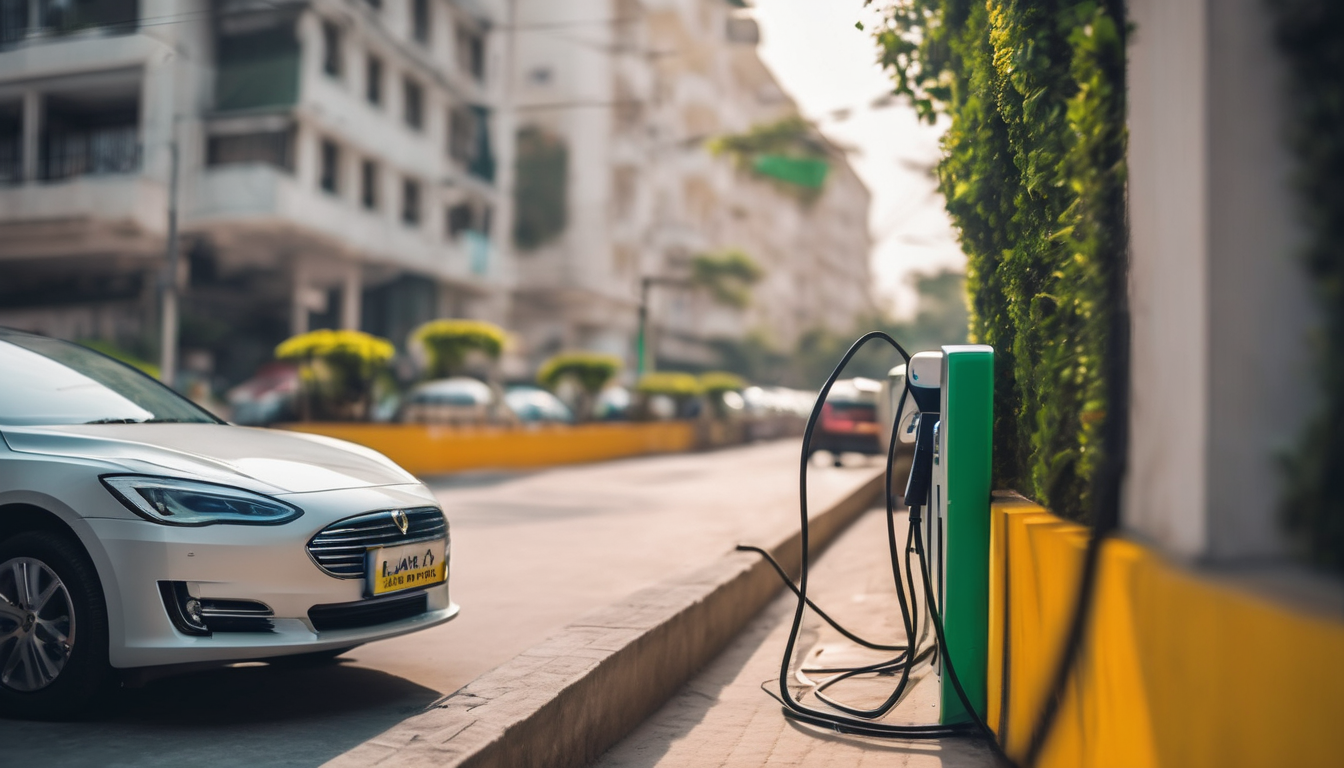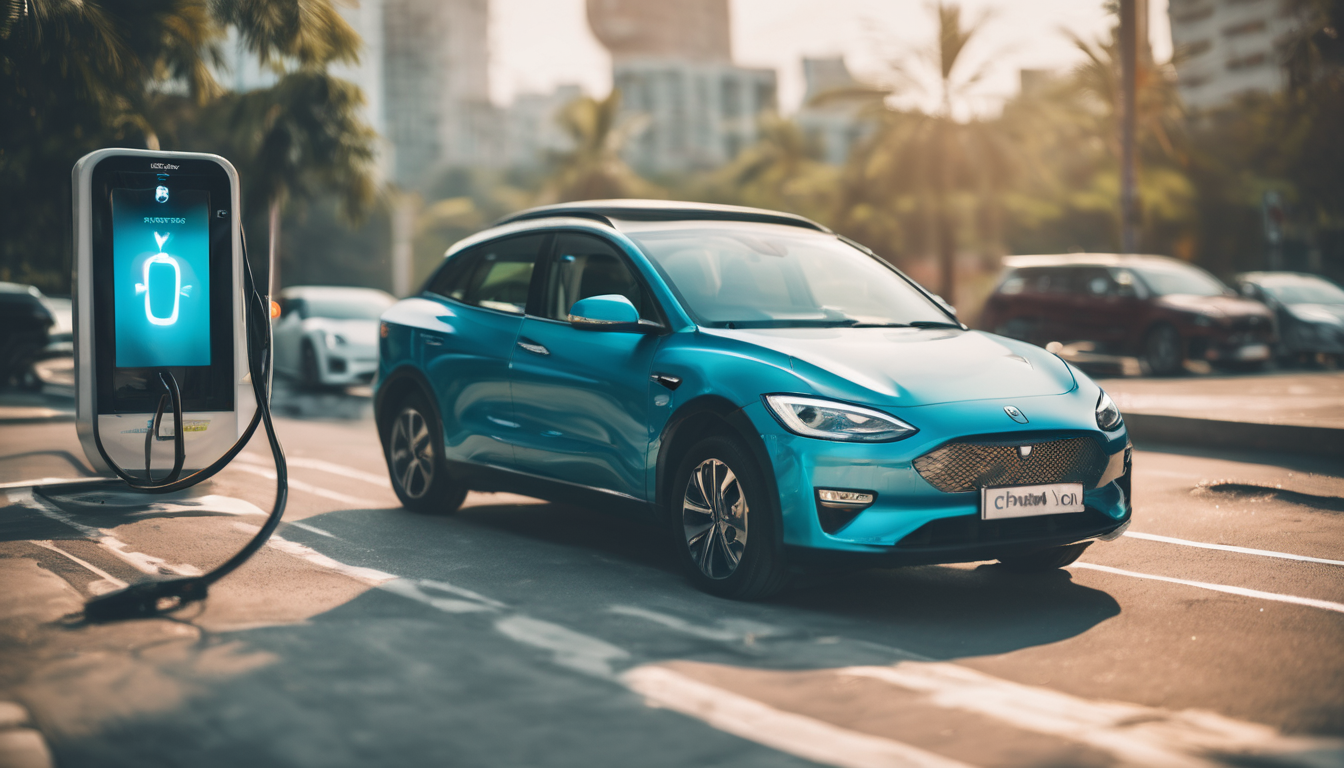Introduction
The surge in global demand for electric vehicles (EVs) has ignited a race to enhance electric vehicle battery technology. As the world shifts towards an emission-free future, researchers, industry players, and governments are striving to overcome challenges and optimize battery performance. This article delves into the evolving landscape of EV Battery Technology, exploring cutting-edge developments that promise to reshape the industry and accelerate the transition to sustainable transportation.
EVs: A Crucial Component of Emission Reduction
Transportation ranks as one of the major contributors to greenhouse gas emissions, second only to the energy sector. To combat climate change effectively, reducing the carbon footprint of transportation is imperative. Over the past decade, the global EV market has gained substantial momentum, driven by consumer demand for ultra-low emission vehicles. Despite disruptions caused by the COVID-19 pandemic, EV sales have maintained a positive trajectory.
Rapid Growth and EV Sales
Global EV sales experienced a remarkable increase of 43% in 2020 compared to 2019 figures, with EV market share reaching 4.3%. This growth trend continued in 2021, witnessing a doubling of sales to 6.75 million units worldwide. The EV revolution is progressing at an unprecedented pace, with more electric vehicles projected to be sold in a single week than in the entire year of 2012.
Aim for Net-Zero: A Driving Force
The rise of EVs is closely tied to global net-zero objectives, prompting many nations to plan the gradual phase-out of new internal combustion engine (ICE) vehicle sales. As the industry embraces this transformation, it confronts critical challenges like range anxiety, battery efficiency, and sustainability.

Advancing Battery Technology
The pursuit of improved EV batteries mirrors a modern-day gold rush, with researchers and automakers investing substantial resources to unlock breakthroughs. Enhancing battery technology to extend range, expedite charging, and ensure reliability and safety is at the forefront of industry innovation.
Exciting Developments in Battery Technology
Promising developments have emerged that promise to reshape the EV landscape:
Game-Changing Fast Charging: Swift charging remains a major concern hindering widespread EV adoption. Swiss start-up Morand has unveiled an innovative EV battery technology called eTechnology, reducing charging time to around 72 seconds. This hybrid system combines conventional battery and ultracapacitor technologies, offering an 80% charge in just over a minute and a full charge in 2.5 minutes. While it may not suit long-range EVs, it’s ideal for city cars, e-bikes, and drones.
Enhancing Battery Safety: Safety concerns surrounding lithium-ion batteries are being addressed by researchers. Stanford University developed a fire-proof electrolyte by increasing the lithium salt content. This advancement enables lithium-ion batteries to operate at temperatures as high as 212°F without catching fire, enhancing safety during extreme conditions.
Understanding Interphase Chemistry: Researchers from the US Department of Energy have delved into interphase chemistry, a crucial factor in enhancing battery energy density. Their innovative use of X-Ray Powder Diffraction revealed intricate details of solid-electrolyte interphase formation, contributing to improved lithium metal batteries.
The Road Ahead
Further innovations are on the horizon:
- NAWA technologies introduced a carbon nanotube electrode that boosts battery power and lifecycle.
- Chalmers University of Technology explores incorporating batteries as structural elements to reduce EV weight.
- The University of Texas focuses on cobalt-free batteries to overcome resource scarcity.
- Researchers in Finland are developing silicon anode batteries.
- IBM collaborates with Mercedes-Benz to extract materials from seawater.
- Ongoing research into solid-state, zinc-air, and sand batteries holds potential for safety, performance, and sustainability enhancements.
Shaping the Future of EV Battery Technology
As the global EV market evolves, advancements in battery technology are integral to achieving net-zero commitments and meeting consumer expectations. A multitude of automakers is unveiling both domestic and commercial EV models to cater to growing demand for electric vehicles. Collaborative efforts by academic institutions, government entities, and industry leaders are driving the technological revolution, while addressing challenges that pave the way for a more sustainable and electrified transportation future with electric vehicles.
For Digital Marketing Service check out Best Digital Marketing Agency







[…] Join us on this thrilling ride as we explore more cars than ever before, setting you on the path to automotive discovery.electric vehicle […]